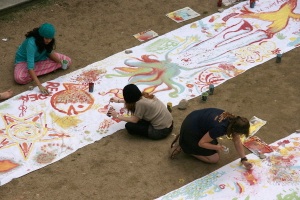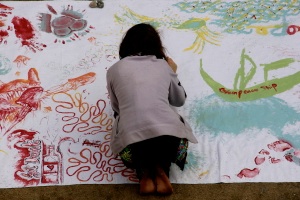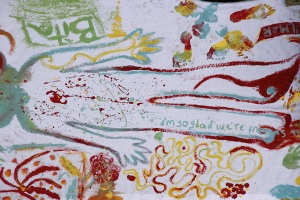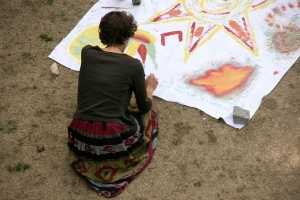Rampant narcissism? Really?
Sunday, 6 March 2011
“New generation infected by narcissism” shouted the headline on last Thursday’s Melbourne ‘Age’, one of Australia’s most respected quality newspapers.
Narcissism is defined by Professor Twenge as the condition of having an inflated sense of self, a lack of empathy, vanity, materialism, and an overblown sense of entitlement. She believes that growing narcissism has resulted in a greater interest in fame and wealth, more plastic surgery, and an increase in attention-seeking crimes, such as (for example) “beating someone up and putting it on YouTube”.
At the conference, Professor Twenge shared her concern about a culture '”that seems to not just accept narcissism but finds it laudatory … It worries me, when I talk to college students, that they are not surprised at all that their generation is more narcissistic. They say, ‘We have to be this way because the world is more competitive.’ But the problem is that narcissism doesn't help you compete. It blows up in your face eventually.” She claimed narcissistic students tended to have poorer results and were more likely to drop out, probably because they thought they didn’t have to study as they were already smart, labelling such thinking ‘delusional’.
Is there any truth in these claims? Are the findings of a researcher in San Diego able to be generalised on a global scale?
On the other hand, as a different reader somewhat comically quipped “This article didn’t mention my name once, so I just lost interest.”
The thing is – I simply do not see the narcissism that Professor Twenge claims is rife.
I have students from almost 80 different countries in my school, and they are very close to the age range that she has investigated. However, every one of my students spends hours upon hours every week engaging in voluntary service activities that help the elderly, the disadvantaged, the disempowered, the weak, the alienated, and those that others in society neglect or forget. They voluntarily make huge, passionately driven efforts to improve the quality of the environment and promote sustainability. Most aim to enter careers that will help to make the world a better place, with wealth and income rarely being identified as their top priority.
Maybe the kind of students that apply to enter United World Colleges are different from the mainstream. That is probably true in many cases; you have to be a fairly brave risk-taker to take on the challenges of living away from home in a diverse, multi-national group of high achieving young idealists. However, I simply can’t accept that our students are SO counter-cultural that they are the absolute antithesis of youth in general.
And as if to emphasise the point, our students are all about to spend the coming week off class working full-time in small groups in various parts of south-east Asia, performing a multitude of voluntary service activities. For example, we have two groups travelling to Cambodia. One group will perform construction work at an orphanage, waterproofing and painting school facilities. The other Cambodian group will work with children at a school, while also providing some help with gardening and painting. Another group will travel to Sichuan (China) where they will help with rebuilding wildlife habitats, especially those environments that support the giant pandas near Dujiangyan.
Five other groups will travel to various parts of Malaysia. One group will promote ecologically sustainable projects at a butterfly farm in Penang. Another group will provide service assistance to the needy in Kuala Lumpur. A third group will assist with the construction of sand enclosures at a turtle sanctuary. A fourth group will assist with tree planting at an orang-utan rehabilitation centre in Borneo, while the fifth group will be engaged with coral monitoring in east Malaysia.
Four other groups of students will be performing service work in support of TraffickLink, the College’s anti human trafficking group. Three groups will work in refuges in Cambodia and Thailand, while a fourth group will engage in anti-trafficking educational work in Singapore.
It’s always hard to have a rational argument with a psychologist such as LaFave, because if we were to quote evidence and data, such as the huge commitment to community and environmental service by my students, it would simply elicit an unsubstantiated assertion such as that my students felt that they were forced to do it, or that my students weren’t being open and honest in expressing their true feelings or declaring their true motivation, or suchlike. That response might have a glimmer of authenticity if (for example) very few of my students continued their commitment to service activities after they started university. But most of them do - and indeed many UWC alumni focus their entire lives and careers on helping others, often at great personal and financial cost to themselves.
Is this evidence of rampant narcissism? I think not.
A scene from the Peer Support Art Afternoon in the Courtyard on Friday afternoon











